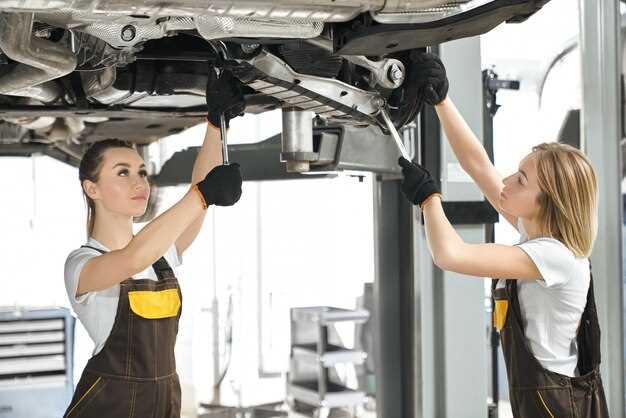
A bent car frame can result from various factors, including accidents, collisions, or even improper lifting techniques during maintenance. Understanding the consequences of a compromised frame is essential for any vehicle owner, as it can severely impact the car’s performance, safety, and longevity.
When a car’s frame bends, it shifts the vehicle’s structural integrity, leading to misalignment of various components. This misalignment can cause improper tire wear, affecting grip and handling. In addition, a bent frame can interfere with the functionality of critical systems, such as suspension and steering, leading to a less responsive driving experience.
Moreover, a damaged frame can influence the car’s crashworthiness. In the event of a future accident, a bent frame may not absorb impact forces as designed, significantly increasing the risk of injury to occupants. Repairing a bent frame is not only costly but can also lead to a complicated evaluation of whether the vehicle is safe for continued use. Ultimately, understanding the implications of a bent frame can help car owners make informed decisions about repairs and maintenance.
Impact on Vehicle Safety and Performance

A bent car frame profoundly affects both the safety and performance of a vehicle. The structural integrity of a vehicle is essential for protecting occupants during a collision and ensuring optimal handling on the road. Here are key points detailing the impact:
- Compromised Safety Features:
- Airbags may not deploy correctly, increasing the risk of injury.
- Crumpled crumple zones can fail to absorb impact energy effectively.
- Structural weaknesses may lead to increased cabin intrusion in an accident.
- Altered Handling:
- Misalignment in the frame leads to uneven tire wear and decreased traction.
- Steering may become unresponsive or erratic due to frame distortion.
- Overall vehicle dynamics suffer, compromising stability in turns.
- Increased Risk of Mechanical Failures:
- Engine mounts and suspension components may be stressed, leading to premature failure.
- Transmission alignment issues can arise, resulting in performance degradation.
- Brake systems can become misaligned, increasing stopping distances.
- Insurance and Resale Value:
- Vehicles with a bent frame are often considered salvage, affecting insurance claims.
- Resale value decreases significantly due to perceived and actual risks.
Addressing a bent car frame is crucial not only for maintaining safety but also for ensuring the vehicle’s performance capabilities. Ignoring these issues can lead to severe consequences on road safety, making timely inspections and repairs essential.
Repair Costs and Insurance Implications

When a car’s frame is bent, the costs associated with repairs can be significant. Repairing a bent car frame typically involves specialized equipment and skilled labor, leading to higher expenses compared to regular bodywork. The extent of the damage and the vehicle’s make and model will heavily influence the total repair costs. Frame straightening, which may require a car lift and precise measurements, can run anywhere from $500 to several thousand dollars, depending on the severity of the damage.
In addition to frame repairs, other components such as suspension, alignment, and body panels may also need attention, further increasing costs. If parts need to be replaced rather than repaired, expenses can escalate quickly, especially if original manufacturer parts are required.
Insurance implications following a bent frame scenario can vary widely. If the damage occurs in an accident where another party is at fault, the at-fault driver’s insurance typically covers repair costs. However, if the owner’s vehicle sustains damage without involving another party, the owner might have to file a claim with their own insurance. This can lead to a higher premium, especially if the owner has a history of claims.
Additionally, in some regions, a vehicle with a bent frame may be classified as a total loss if the repair costs exceed a certain percentage of its market value. This classification can significantly impact the vehicle owner, as they may receive a payout less than expected, limiting their ability to purchase a comparable replacement.
Overall, understanding repair costs and the corresponding insurance implications is critical for vehicle owners facing a bent car frame. Being knowledgeable about potential expenses and possible impacts on insurance premiums can help in making informed decisions regarding repairs and future vehicle purchases.
Signs of a Bent Frame and When to Seek Help
A bent car frame can lead to a host of issues that compromise both safety and performance. Recognizing the signs early can save you time, money, and ensure your vehicle remains roadworthy.
Some common signs of a bent frame include:
- Uneven Tire Wear: If you notice that your tires are wearing down unevenly, it may indicate that the frame is misaligned, causing improper tire contact with the road.
- Alignment Issues: Difficulty steering, pulling to one side, or a steering wheel that is off-center can suggest a bent frame impacting the vehicle’s alignment.
- Body Panel Gaps: If you observe uneven gaps between body panels or see that doors and hoods don’t close properly, this may be a sign of a compromised frame.
- Unusual Noises: Grinding, rattling, or clunking sounds during driving can indicate structural damage linked to a bent frame affecting various components.
- Inconsistent Suspension Performance: If your vehicle’s suspension feels soft or bouncy, it could be struggling due to a misaligned frame affecting the suspension system.
It is crucial to seek help if you observe any of these signs. Ignoring potential frame issues can lead to worsening conditions that affect safety and drivability.
Consider consulting a professional mechanic if:
- You have been involved in an accident: Even minor collisions can lead to frame damage, which may not be immediately visible.
- Your vehicle exhibits one or more of the signs mentioned: Early intervention can prevent extensive damage and costly repairs down the line.
- You’re preparing for a long trip: Ensure your vehicle is in optimal condition before hitting the road by getting a thorough inspection.
By addressing signs of a bent frame promptly, you can maintain your vehicle’s integrity and safety on the road.

